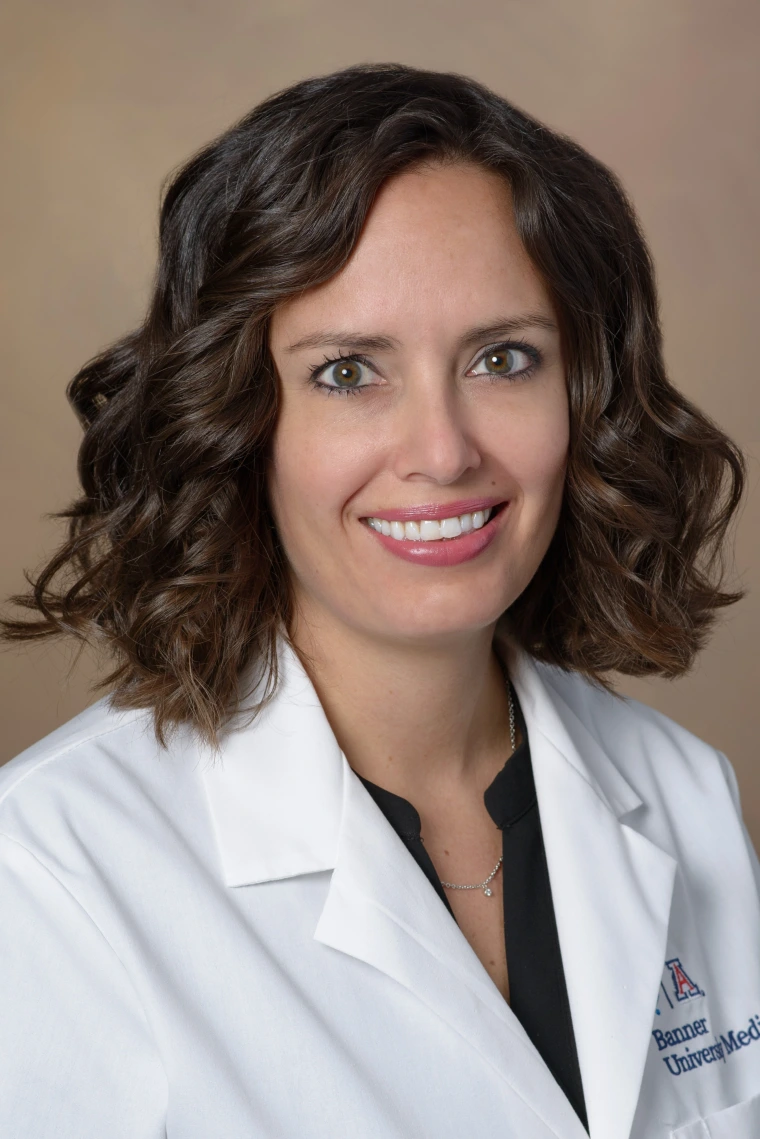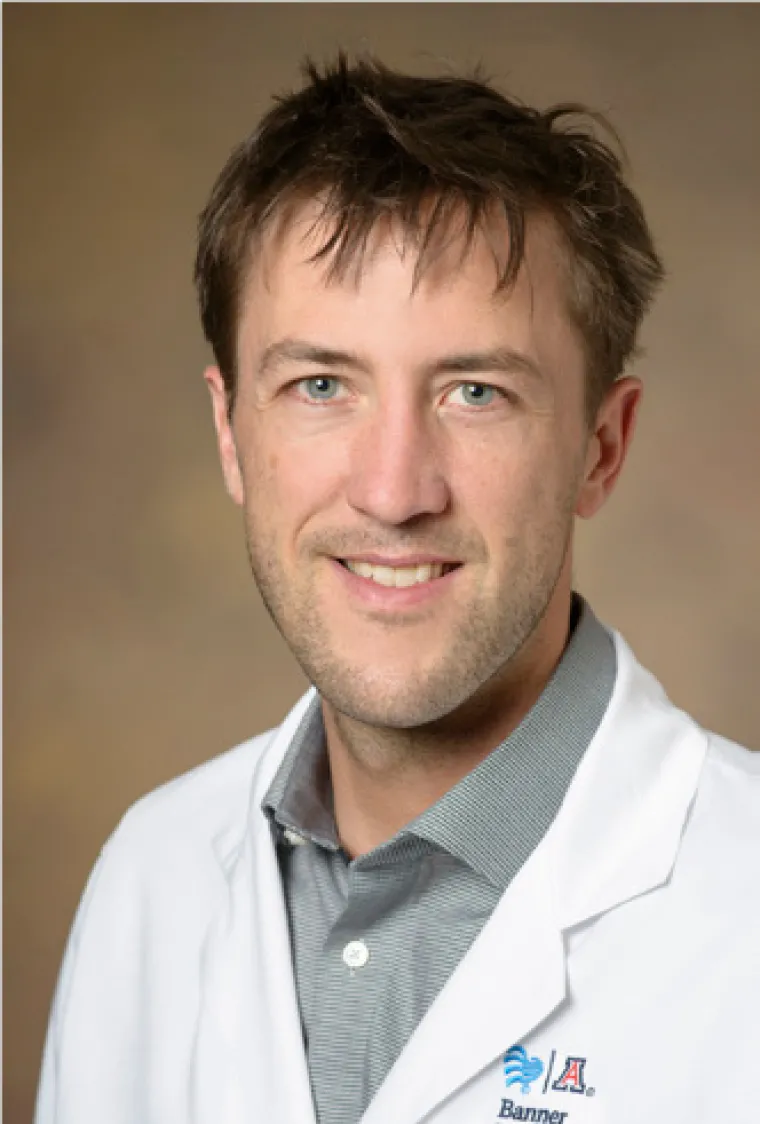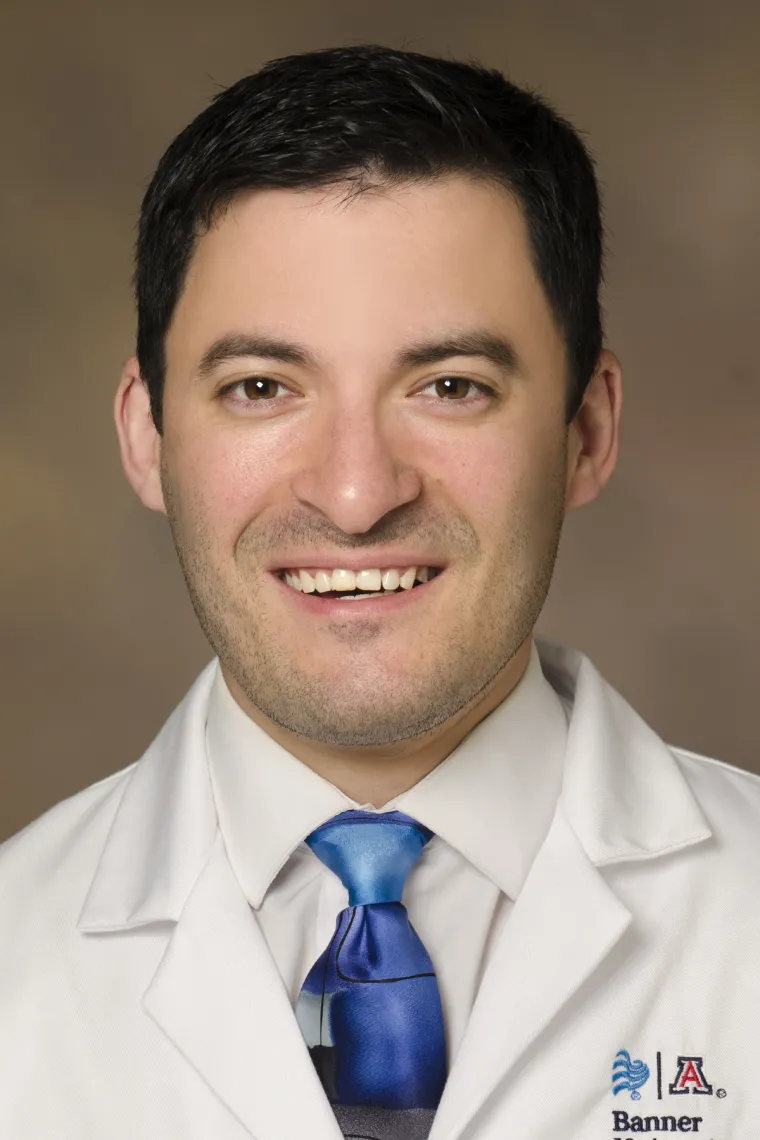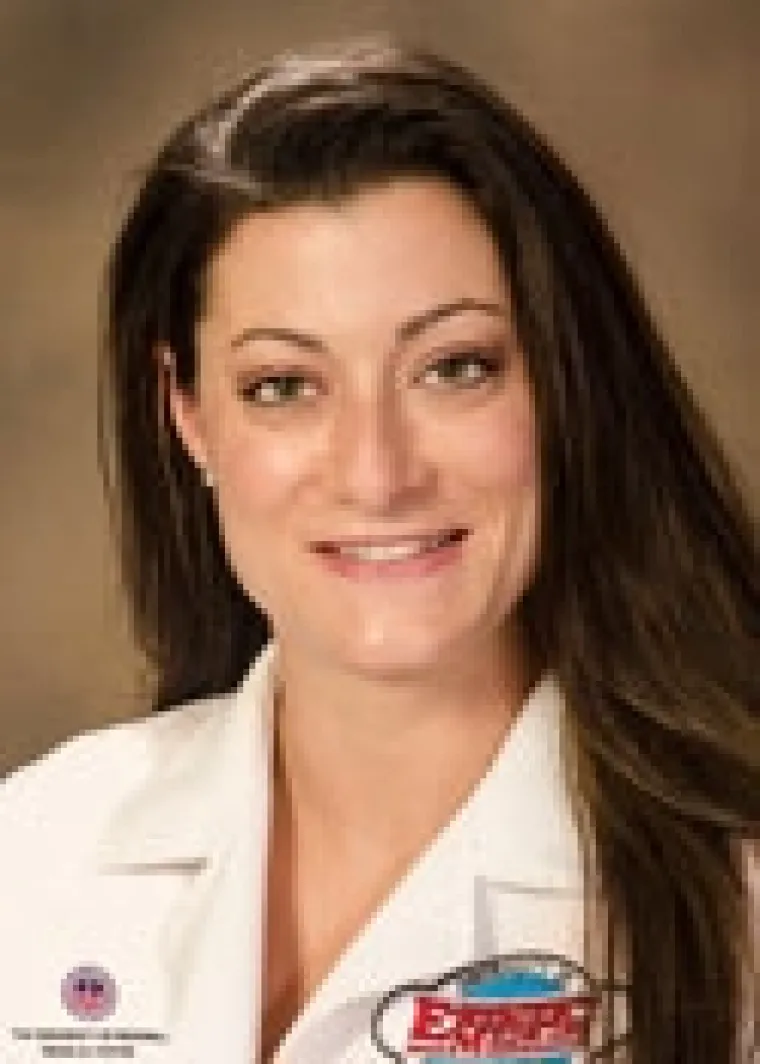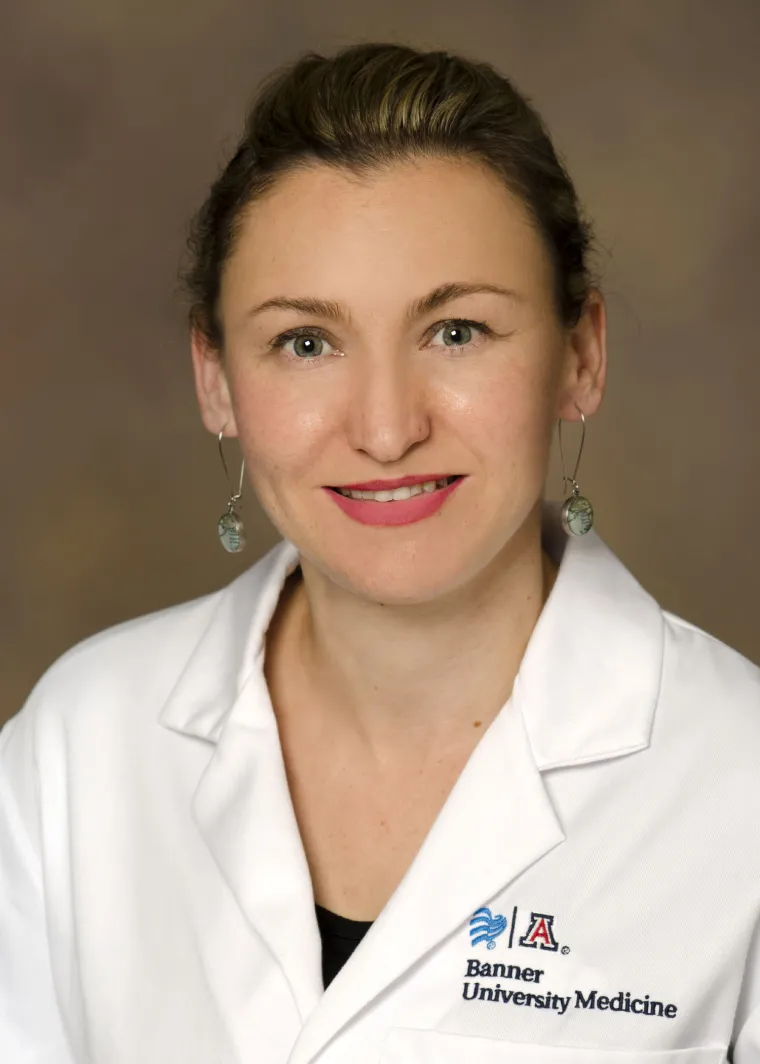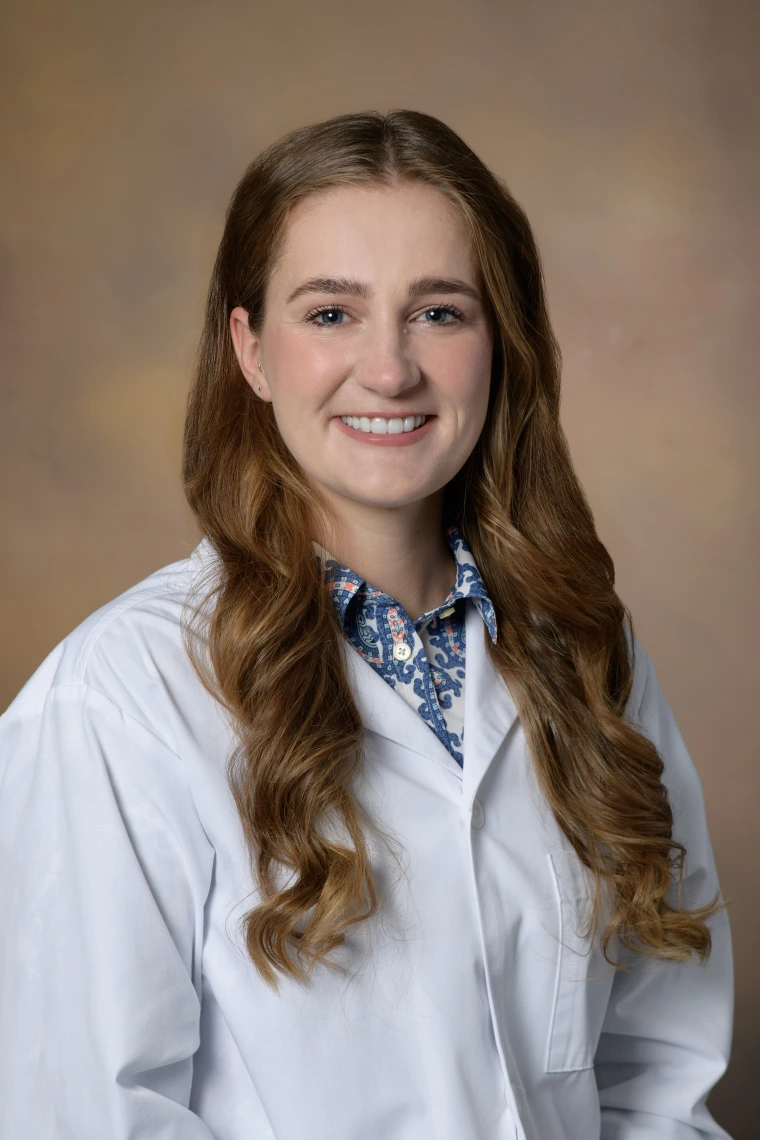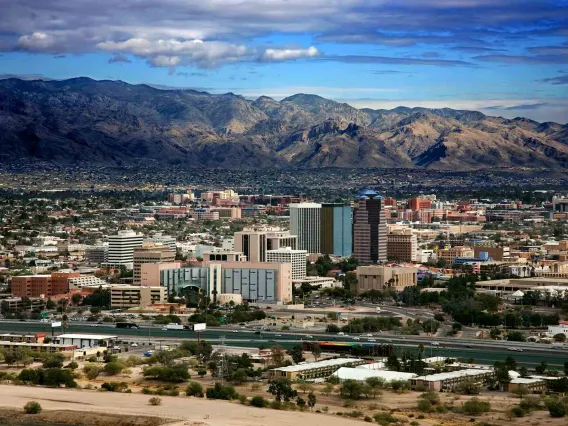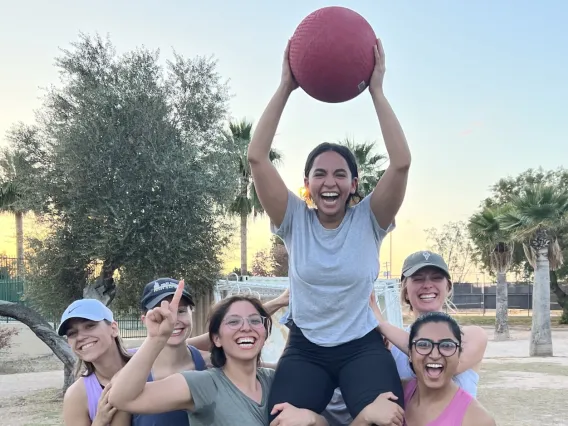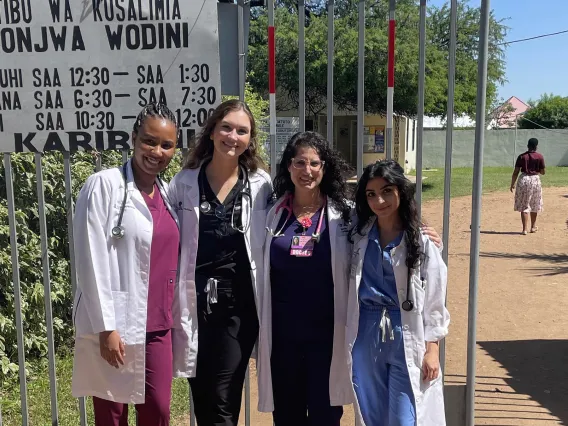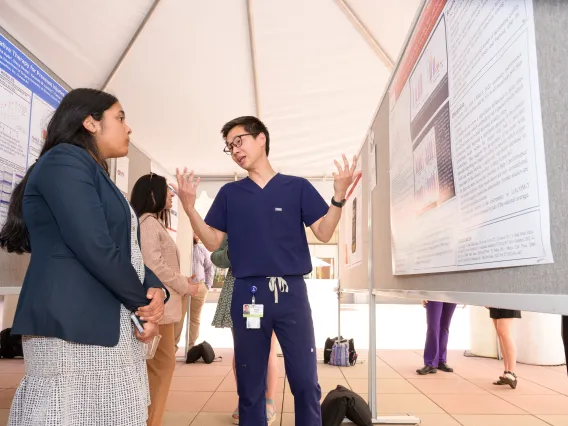Emergency Medicine
Mission Statement
Our mission is to develop excellent leaders in emergency medicine by immersing our residents in an intellectually stimulating, culturally fulfilling and compassionate learning environment.
The Department of Emergency Medicine offers a dynamic three-year residency program at Banner – University Medical Center South, a community hospital within an academic setting. The program combines clinical training, academic activities and research opportunities, and cultivates leaders in emergency medicine through a rigorous, culturally rich and compassionate learning environment. Residents regularly treat a diverse patient population, particularly from Hispanic and Native American communities. The curriculum emphasizes rural, border and global medicine and features a medical Spanish immersion component to enhance communication and care delivery.
Residents benefit from a close-knit, supportive program structure, working alongside nationally recognized, board-certified faculty who are experts in areas such as emergency ultrasound, toxicology, sports medicine and disaster preparedness. The program’s small size fosters strong mentorship and rapid development of independence. With a focus on underserved communities, the residency offers robust training opportunities in a modern facility featuring a secure psychiatric unit and high-acuity resuscitation rooms. This infrastructure supports the department’s commitment to delivering exceptional care to the growing South Tucson community while advancing resident education and research.
Program Director
Faculty
Staff
About Our Program
Banner – UMC South Hospital serves a varied population of patients, including underserved, culturally diverse, rural and inner-city populations. Supervision is provided by our excellent core faculty, who are all University of Arizona physicians and include specialists in simulation, medical toxicology, addiction medicine, sports medicine, pediatric emergency medicine, ultrasound, EMS, and disaster medicine. Our residents have numerous procedure experiences and serve as the first called for trauma resuscitations and orthopedic reductions at South Campus.
We aim to:
- Foster a family-friendly, tight-knit environment and promote an inclusive physician well-being program, both professionally and personally.
- Support and maintain a rigorous academic residency program that provides excellent clinical and didactic teaching and integrates cutting-edge clinical research.
- Expose residents to diverse practice settings to better prepare graduates for any career opportunity.
- Provide an enriching and comprehensive medical Spanish immersion program to better serve our Hispanic patient population.
- Commit to fostering a welcoming and supportive environment within our residency program, department and hospital system.
- Facilitate scholarly activity by supporting the three departmental research arms: education and curriculum development, original abstract research design, and translation of evidence-based medicine guidelines into clinical practice.
- Promote continuous process improvement and encourage a culture focused on patient quality and safety initiatives.
Our Patients
We care for a substantial proportion of our city’s uninsured and under-insured and are home to a great many patients with a complex blend of medical, social and psychiatric problems. These are other types of patients commonly seen in our emergency department:
- Latinos (who may or may not be citizens of the U.S.)
- Snowbirds (people who spend winters in Arizona but live in other parts of the U.S. for the remainder of the year)
- Arizona natives and ranchers
- Native Americans
Our Faculty
Our nationally renowned and board-certified faculty members include experts in:
- Critical care
- Disaster medicine
- Emergency ultrasound
- Combined emergency medicine and pediatrics
- EMS
- Research
- Medical simulation
- Sports medicine
- Medical toxicology
On top of the salary and benefits that all College of Medicine – Tucson residents receive, South Campus residents receive additional benefits:
- Meal allowance (when on nights)
- Professional liability insurance
- Scrubs allowance
- Book/professional development allowance
- Educational leave and travel allowance for presentations at national meetings (with department approval)
- ACLS, ATLS, PALS instructor courses provided
- Photocopying and MEDLINE searches
- Notary service
- Free parking
- Membership to EMRA
- Rosh Review, EMRA membership, ECG Weekly and EM Coach
- Funds for global/border/rural health rotation in PGY3
- Educational/conference stipend in PGY3
- Fatigue mitigation
- Uber rides
Curriculum
We participate in a three-year longitudinal EMS curriculum in which residents assume increasing responsibility for patient care and emergency department flow. Each clinical year includes six-plus months of emergency department experience, with an additional month of orientation in the first year. EMS is integrated into the PGY2 and PGY3 years.
Goals
PGY1
- familiarizing the resident with basic patient care and procedural competency
- developing initial clinical decision-making skills
PGY2
- improving patient care efficiency
- gaining graduated responsibility for emergency department flow
- attaining procedural excellence
- developing skills to evaluate and manage critically ill patients
PGY3
- developing master clinician skills
- fostering teaching of students and junior residents
- increasing efficiency in ED flow with increasing administrative responsibilities
| EMERGENCY MEDICINE | PGY1 | PGY2 | PGY3 |
| BLOCK 1 | ORIENTATION / ED | RURAL MEDICINE | ED |
| BLOCK 2 | SPORTS MEDICINE | ED | ED (2 WEEKS) /EM-PEDS (2 WEEKS) |
| BLOCK 3 | ED/ Vacation (1week) | ED | ED/ Vacation (1 week) |
| BLOCK 4 | OB/CARDS | SICU | ED (2 WEEKS) /VACATION (1 WEEK) |
| BLOCK 5 | ED/Addiction | EM-PEDS (2 WEEKS)/VACATION (1 WEEK) | ED |
| BLOCK 6 | ED/Vacation (2 weeks) | ED/ VACATION (1 WEEK) | RURAL/Boarder/GH Elective |
| BLOCK 7 | ED | NICU (2 WEEKS) /ED (2 WEEKS) | Board Prep Elective (2 weeks) |
| BLOCK 8 | SC ICU/ UC ICU | TOX/Integrative Med | RURAL MEDICINE |
| BLOCK 9 | Trauma | PICU | ED (2 WEEKS) /VACATION (2 WEEKS) |
| BLOCK 10 | ED | ED | GLOBAL HEALTH |
| BLOCK 11 | ED | EMS/ED | ED |
| BLOCK 12 | Palliative/Ophtho/Ultrasound | ED (2 WEEKS)/ Vacation (2 WEEKS) | EMS/ED |
| BLOCK 13 | ED/Vacation (1 WEEK) | ED | ED |
A comprehensive didactic curriculum specifically developed for this program combines core content with culturally specific topics, including medical Spanish language immersion and simulation medicine. Also, residents will be actively involved in case conferences, continuous process improvement and continuous quality improvement. Our class size of eight residents per year allows for more resident and faculty interaction at the weekly conferences.
Emergency medicine is a rapidly expanding field with increasingly greater opportunities to specialize after general training. To help meet these needs and prepare interested residents, our residency programs offer an optional subspecialty track alongside the current training. Residents in good standing can elect into a track toward the end of the intern year. Track components include:
- Paired mentorship with faculty having expertise in their subspecialty track
- Track-specific core content learning and journal club
- Aligned and tailored EM-2 and EM-3 selectives
- Attendance and/or presentation at track-related regional, state or national conference
Currently we have the following subspecialty tracks:
- Critical Care
- Emergency Medical Services
- Emergency Ultrasound
- Global Health
- Medical Education
- Pediatrics
- Sports Medicine
How to Apply
The University of Arizona College of Medicine – Tucson at South Campus Residency Program is accepting applications for PGY1-level positions only. This program is separate from the University of Arizona College of Medicine – Tucson’s categorical EM residency. Both programs participate in the National Resident Matching Program, so please ensure you are applying to the correct program. If you wish to apply to both programs, you will need to select both programs in ResidentCAS.
For applicants in the PGY1 class beginning July 1 each year, we will be using ResidentCAS. Our program’s deadline for receipt of ResidentCAS application materials is November 1 each year.
Make sure you include:
- Dean’s letter
- Medical school transcript
- Standardized letter of evaluation from the Emergency Medicine Council of Residency Directors (the Academic Program Director at your institution is preferred)
- Two other current letters of reference (letters from emergency medicine physicians are best, letters from other clinical specialties are certainly acceptable, and letters from other reference sources may be suitable depending on your background); applicants currently in postgraduate training must supply a letter of reference from their current program director
- USMLE step 1 or COMLEX level 1
Interviews for Residency Positions
Interviews for residency positions will be granted by invitation only after reviewing your completed application. Our interview season will start the last week of October, conclude in mid-January and take place virtually on Thursdays.
2025-2026 Interview Season Important Dates
Virtual Interview Dates
- Oct. 30 (U of A students)
- Nov. 6, 13, 20
- Dec. 4, 11, 18
Two sessions available
- 10 a.m. – noon
- 1 – 3 p.m.
Residency Program Rank Meeting: TBD
Optional In-Person Second Looks: TBD
Training in Tucson
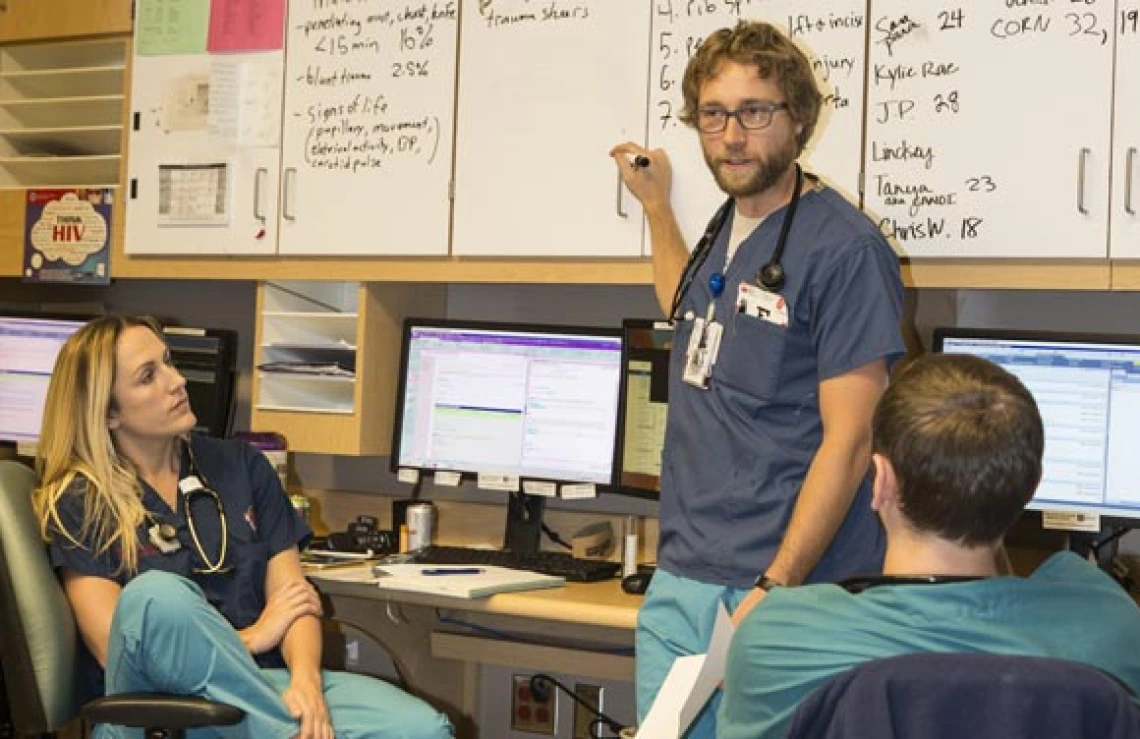
Learn more about the residency and fellowship programs at the College of Medicine – Tucson.
Contact


